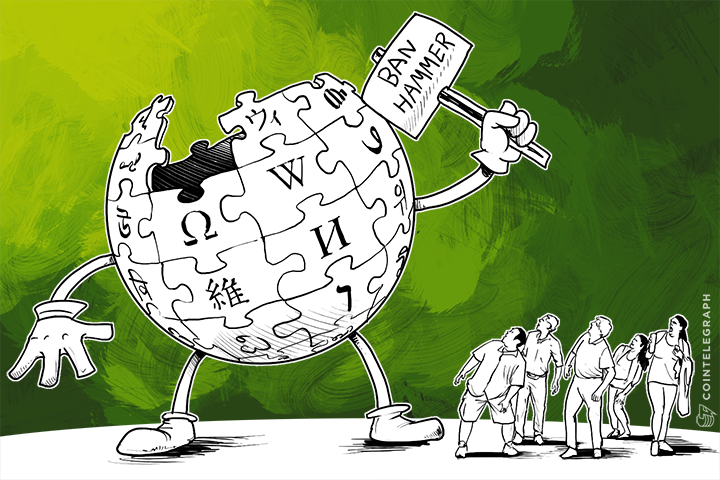The world’s number one user-edited reference guide, Wikipedia, has suffered an extortion scandal due to “undisclosed paid advocacy.” Working through dozens of persons and companies, including many Bitcoin casinos and affiliates, this ring of hundreds of “editors” have been banned from Wikipedia.
Attack of the Sockpuppets
Operation “Orangemoody” began in July when the “sockpuppets” were first discovered. A “sockpuppet” is someone who is affiliated or working with the edited parties’ information through a secondary account but claims to be unaffiliated.
This practice violates Wikipedia’s terms of service and 381 such accounts in total were discovered and over 200 articles were terminated. It is suspected that this was a coordinated effort to promote new businesses on the site.
“Most of these articles, which were related to businesses, business people, or artists, were generally promotional in nature, and often included biased or skewed information, unattributed material, and potential copyright violations,” Wikipedia said in an official statement, adding:
“The edits made by the sockpuppets are similar enough that the community believes they were perpetrated by one coordinated group.”
The businesses involved include many Bitcoin casinos, including Bitcoin Casino 4U, Bitcoin Casino 365 and Bitcoin Casino Affiliate. This was not done with the consent of those listed on Wikipedia, and was most commonly an extortion plot. This practice was only propagated upon the English-language version of the site.
How the scheme worked
The “sockpuppets” would create an article draft about the company or individual and contact them to post it for a nominal cost since people cannot post articles about themselves on Wikipedia. After this, the sockpuppet would offer to “protect the article from vandalism and prevent its deletion” at a cost of US$30 a month for what amounts to a protection and extortion racket. If payments were not made, the articles would be deleted.
This practice clearly can compromise Wikipedia’s reputation as a legitimate source of information about people, places, and things. This is not the first such issue Wikimedia has had with a coordinated effort to falsify posted information. Over 300 “sockpuppet” accounts were banned in 2013 involving an organization called Wiki-PR, causing Wikipedia to adjust and improve its user agreement and TOS for such issues.
One of the editors involved in this investigation named “Risker” posted the following message for the Wikipedia community:
“Be kind to the article subjects. They too are victims in this situation.”


